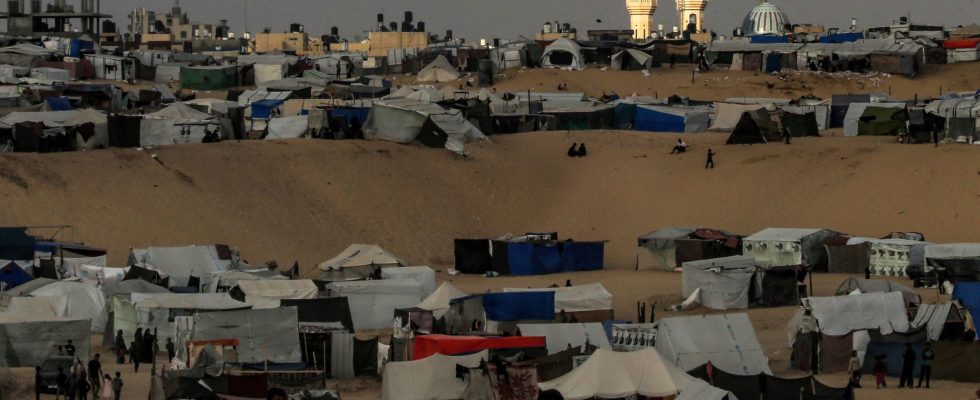“There is a very good proposal on the table currently. Hamas must say yes,” insisted American Secretary of State Antony Blinken, during his visit to Israel on Wednesday May 1, determined to achieve a truce “right now.” in Gaza that mediators have been trying in vain to negotiate for months. At the end of November, a one-week truce allowed the release of 105 hostages, including 80 Israelis and dual nationals exchanged for 240 Palestinians, as well as the delivery of international aid convoys. Since then and despite the negotiations: nothing more.
This Thursday, Israel and the mediating countries – Qatar, the United States and Egypt – are still awaiting Hamas’ response to the latest proposal, providing for a 40-day truce as well as the new exchange of Israeli hostages kidnapped on the 7th. last October against Palestinians detained by Israel. And this, while Israel has been preparing, for weeks, to attack the city of Rafah located in the south of the landlocked territory, where nearly 1.5 million displaced people are crowded into a disastrous humanitarian situation.
According to the United States, Israel, sometimes hesitant to engage in negotiations, has made substantial concessions in recent weeks. It is now Hamas which seems recalcitrant. Why is it still blocking?
Hostages, last lever for Hamas
Apparently, the negotiations are currently based on the number of hostages that it will be possible to exchange. Hamas refused a first deal, citing its inability to exchange 40 Israeli hostages “still alive, women, elderly or sick”. Israel ultimately agreed to exchange only 33 hostages for more Palestinian prisoners. A concession which does not seem to be enough to convince Hamas to accept the offer.
Because in reality, much more than the return of Palestinian prisoners, it is the end of the war and the withdrawal of Israeli troops that Hamas hopes to obtain in the long term. Without this assurance, releasing the Israeli hostages would mean giving up its last leverage in the negotiations for this considerably weakened force. “This is a well-known enigma in the Middle East. All Israeli-Palestinian peace negotiations have come up against what the arbiters call: the final status,” analyzes the journalist from the American daily THE New York Times, David Leonhardt, in “The Morning” Newsletter. An outcome that Israel refuses, its Prime Minister, Benjamin Netanyahu, saying he is determined to continue the offensive until “total victory” over the Islamist movement, considered a terrorist organization and some of whose fighters are said to have taken refuge in Rafah.
Hope for a permanent ceasefire, really?
American negotiators hope for two things thanks to this possible short truce: to prevent at all costs the Rafah offensive, which could cause thousands of additional civilian deaths, and to gently push the two parties towards a cease-fire. permanent fire, encouraged in particular by the release of the last Israeli hostages and by the increase in the humanitarian presence in the Gaza Strip. And thus be able to begin the reconstruction of the country, in partnership with strong Arab nations in the region, such as Saudi Arabia, who would subsequently normalize their diplomatic relations with Israel.
But hope is distant as long as the paradox persists: Hamas will not risk releasing Israeli hostages without the assurance that this gesture will lead to the end of the war, while only the release of these hostages could trigger a truce , and encourage, according to the ideal of the United States, the possibility of a permanent ceasefire on the part of Israel. A scenario of an imminent end to the war is nevertheless implausible, since Benjamin Netanyahu reiterated his promise on Wednesday, May 1: Israel will ultimately attack the city of Rafah to destroy Hamas, “with or without a truce.” The United States is aware of this: in parallel with the exchanges between Blinken and Netanyahu, American Defense Secretary Lloyd Austin spoke during the night from Wednesday to Thursday with his Israeli counterpart Yoav Gallant concerning “the need for any possible operation military in Rafah to include a credible plan to evacuate Palestinian civilians there and maintain a flow of humanitarian aid,” according to the Pentagon.
